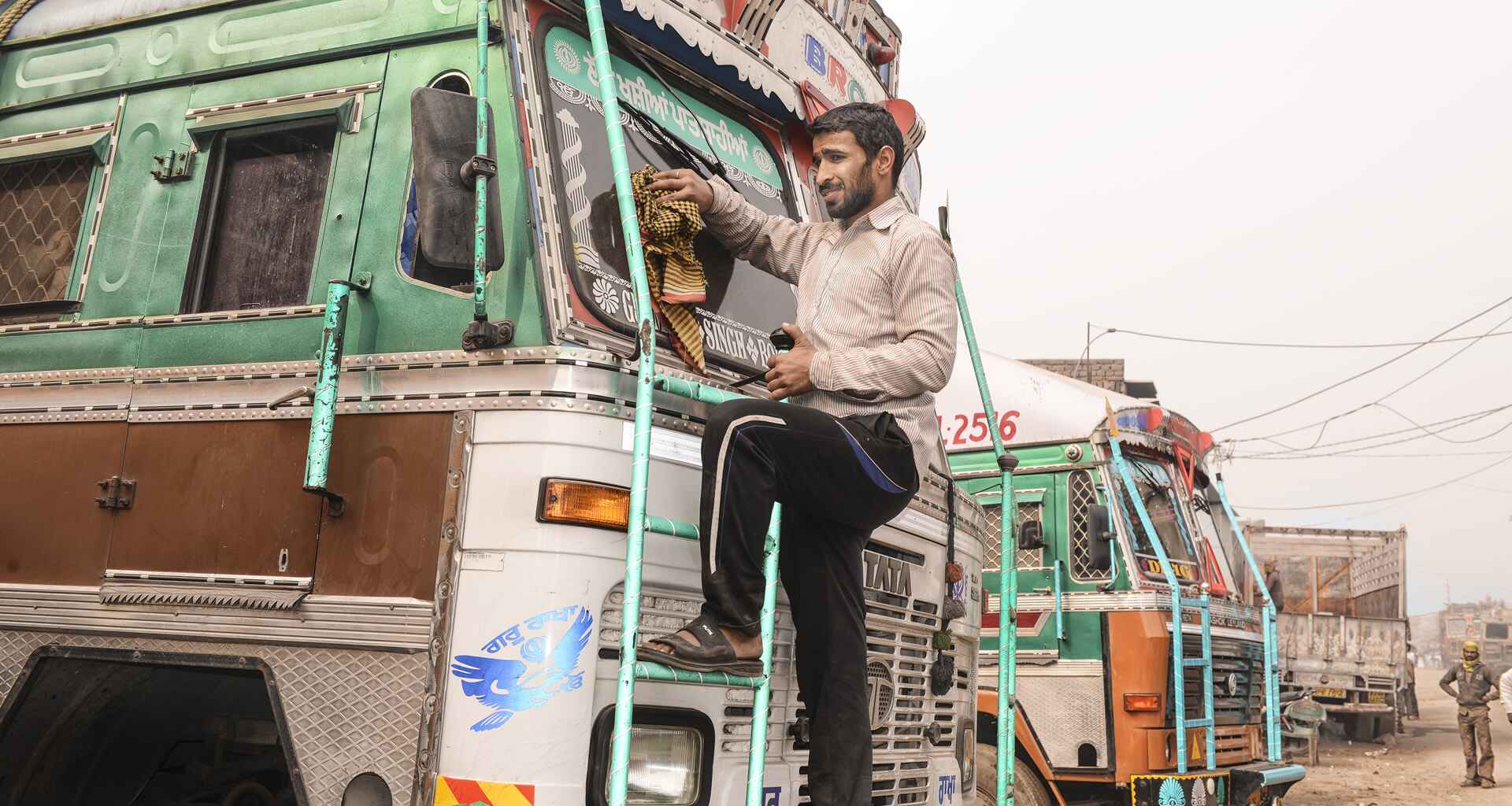
HEALTHCARE FOR TRUCKING COMMUNITY
Aligned to SDG Goals
No.3 : Good Health and Well-being
Health is a vital component of the United Nations' Sustainable Development Goals and is a key intervention area in the Apollo Tyres sustainability roadmap. As the end-users of products and partners in the company’s growth, the trucking community is an integral part of Apollo’s healthcare initiatives under social and relationship capital.
The Company considers health to be of utmost importance and works extensively with its customers i.e., trucking community, in the domain. To this end, the company is seeding change right at the grassroots, by devising outcome-based programmes. These initiatives not only enhance the wellness of the community but also improve the environment too.
Eliminating the health risks of the trucking community and providing them with top healthcare services, Apollo Tyres has initiated a comprehensive healthcare programme, in line with SDG Goal No. 3 – Good Health and well-being, for the trucking community, in the year 2001. There are 32 Healthcare Centres, operating out of transhipment hubs, and spanning across 19 Indian states.
Key Services:
1. HIV-AIDS Awareness & Prevention
The trucking community is highly prone to HIV/AIDS due to harsh working conditions, socio-economic inequality, and behavioural issues. To address these deep-rooted problems, Apollo Tyres initiated an HIV awareness and prevention programme in 2001. The programme offers counselling, spreads awareness through Peer Educators and provides testing support through Integrated Counselling and Testing Centres (ICTC), in partnership with State AIDS Control Society (SACS).
Peer Educators (PE) or volunteers play an important role in awareness creation and beneficiary referrals to healthcare centres due to their local connect. So far, the programme has mobilised about 1021 active PEs across its locations.
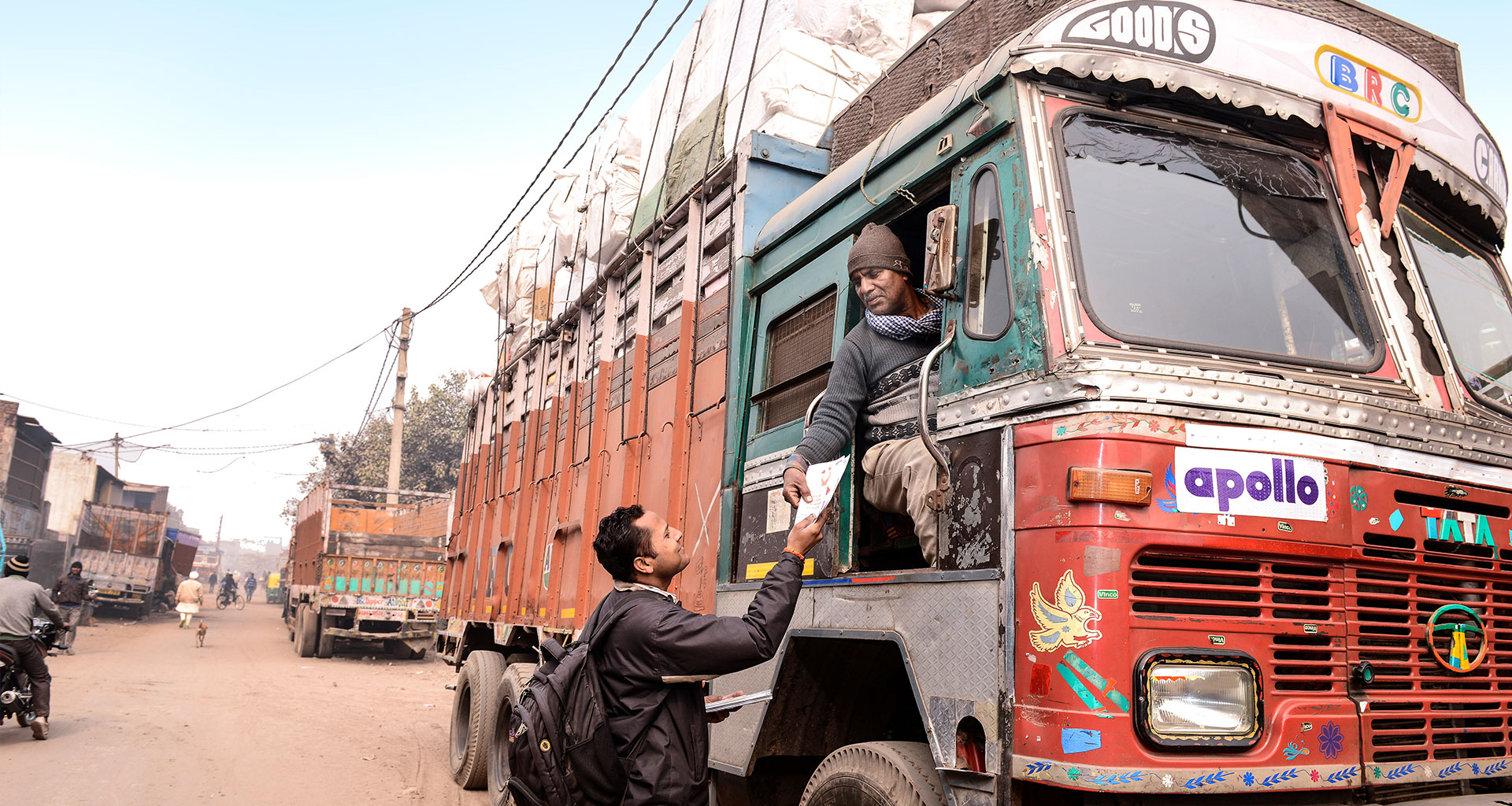
2. Vision Care
Vision impairment is one of the most common yet most neglected issues among the trucking community. Apollo Tyres has partnered with Essilor India Pvt Ltd (2.5 NVG) to provide regular and affordable vision check-ups for the trucking community under its vision-care programme. Periodic eye check-up camps, spectacles distribution to the affected and cataract treatment at nearby hospitals are also facilitated at transhipment hubs.
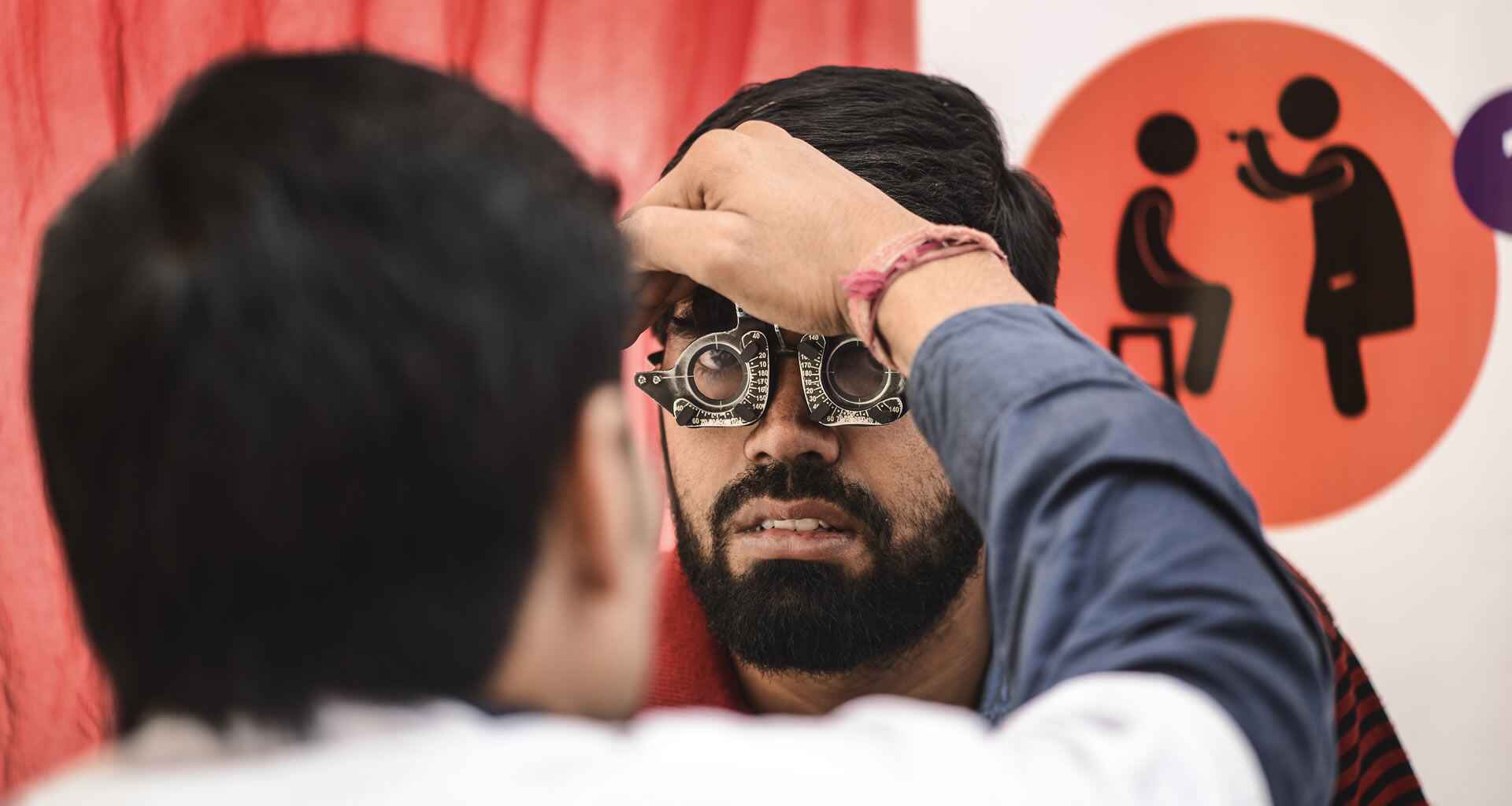
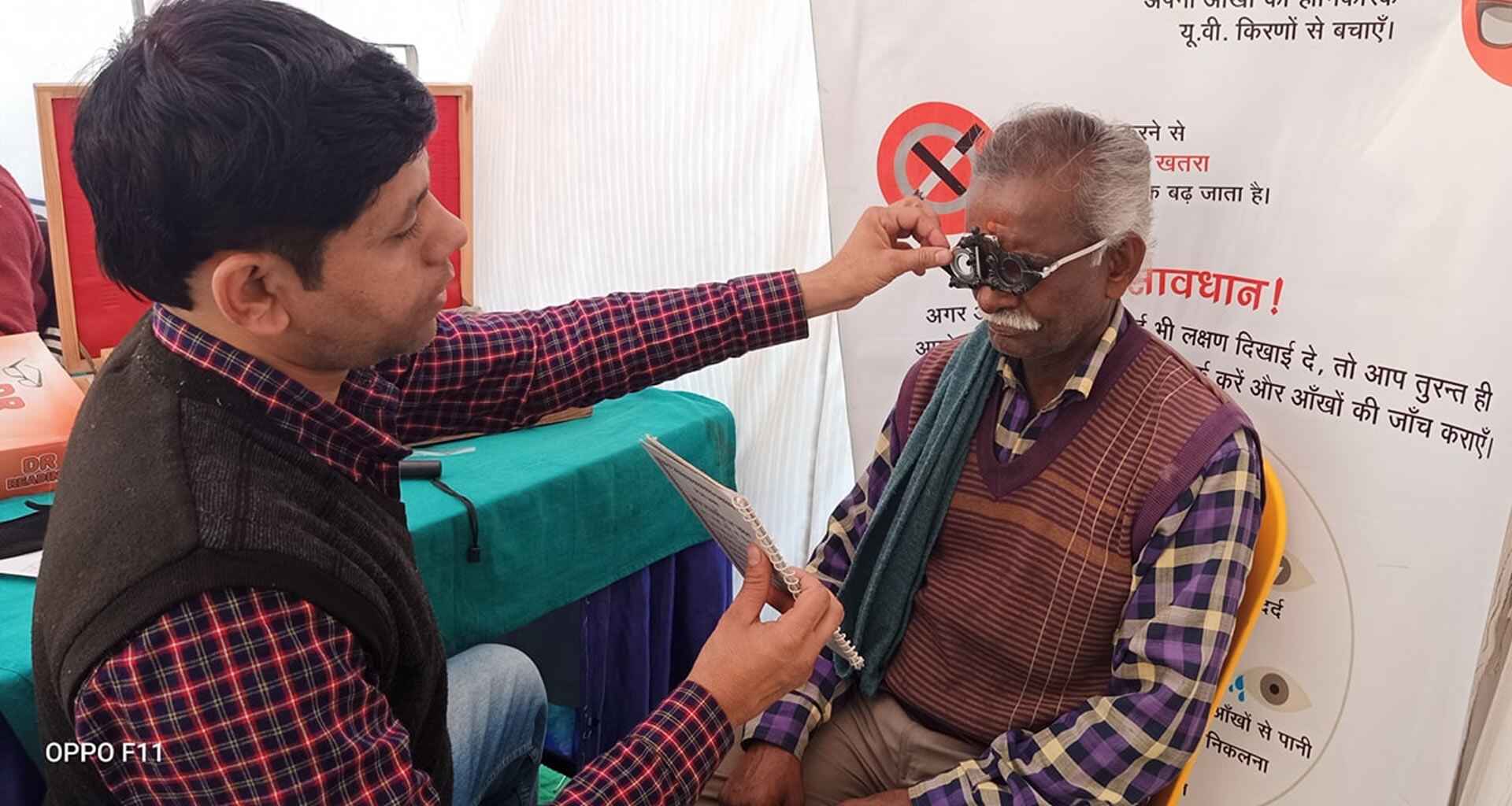
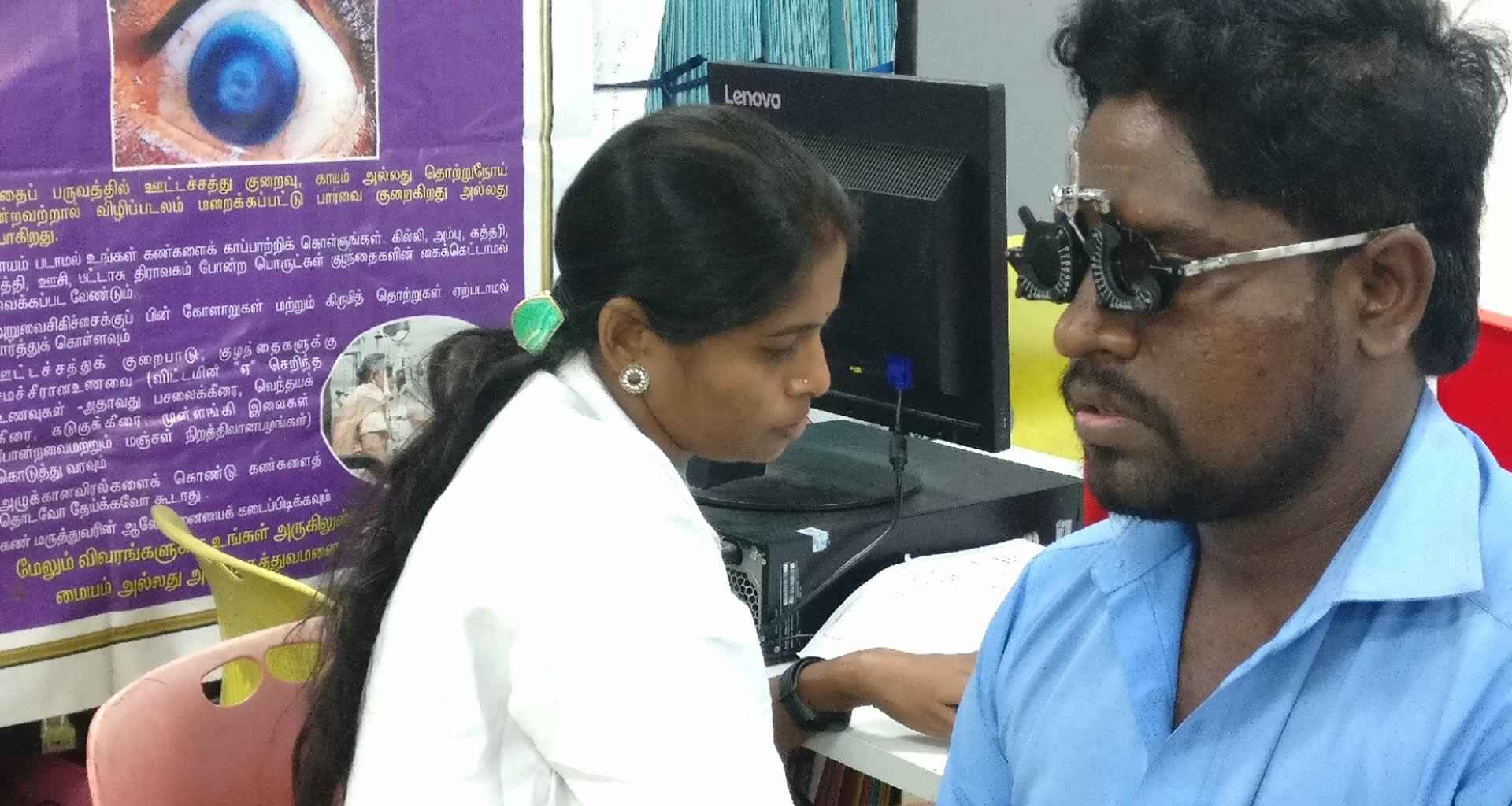
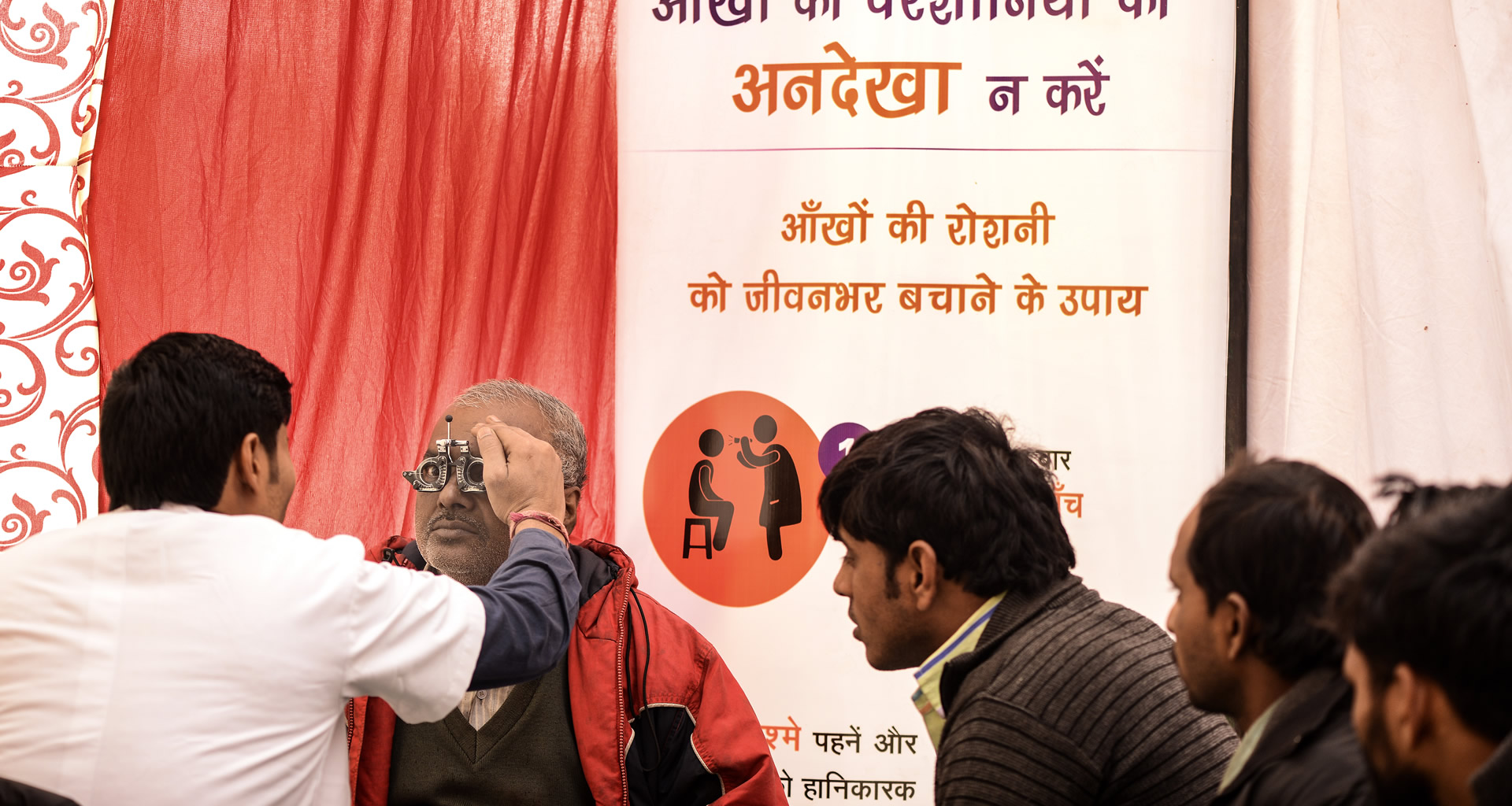
3.Awareness on Tuberculosis (TB)
As a diamond member of Corporate TB Pledge (CTP) - a joint initiative of the Government of India and USAID - Apollo Tyres is committed to eliminating TB in India by 2025. Various investigative and preventive programmes undertaken by the company across 32 locations has helped mitigate the risk of infection and provide treatment support.
17 Designated Microscopy Centres (DMC) are in operation at Agra, Gwalior, Guwahati, Mundra Port, Delhi, Kanpur, Agartala, Jaipur, Jodhpur, Bengaluru, Pune, Ludhiana, Kolkata, Hyderabad, Raipur, Nagpur and Jalandhar locations.
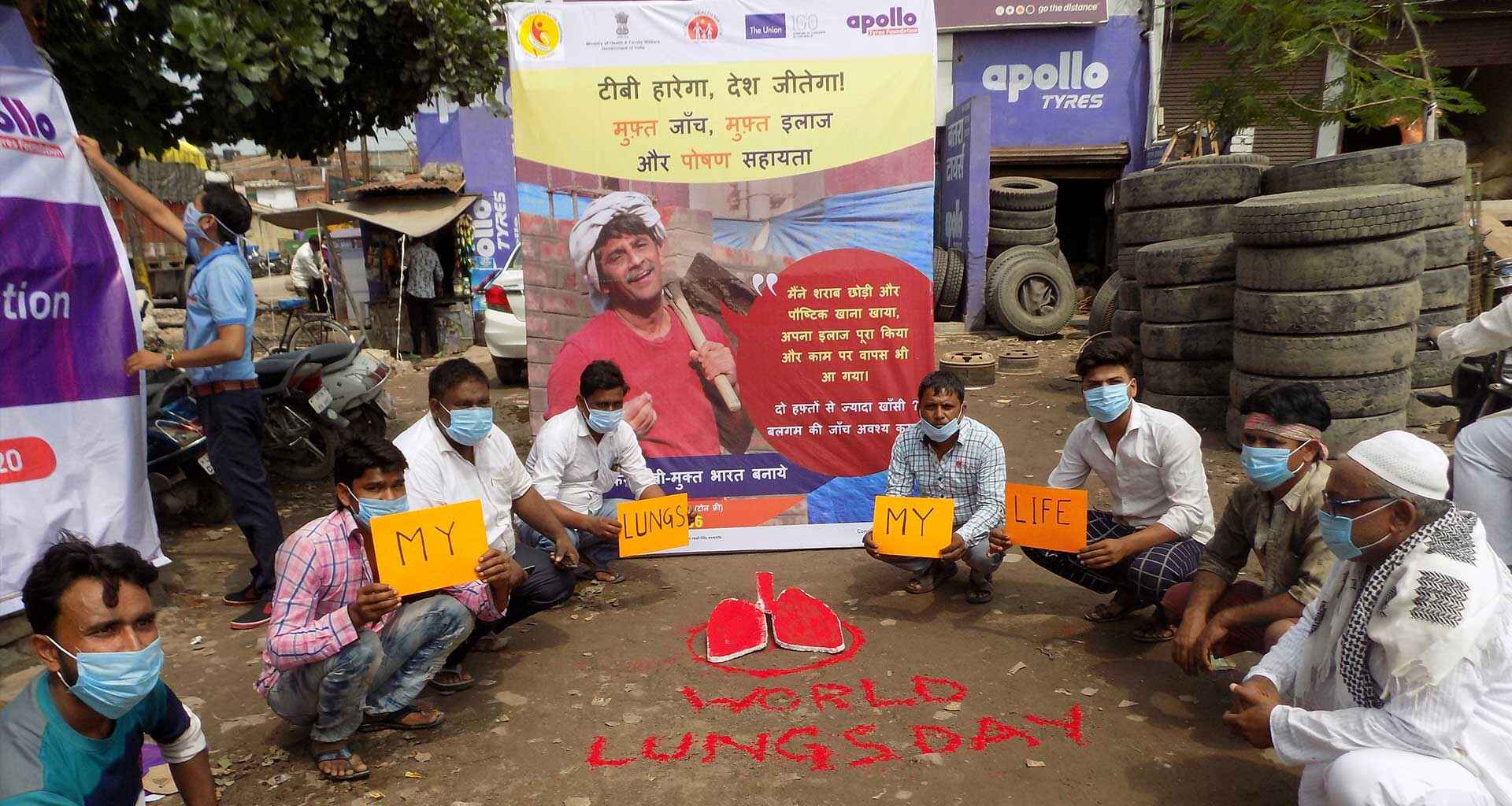
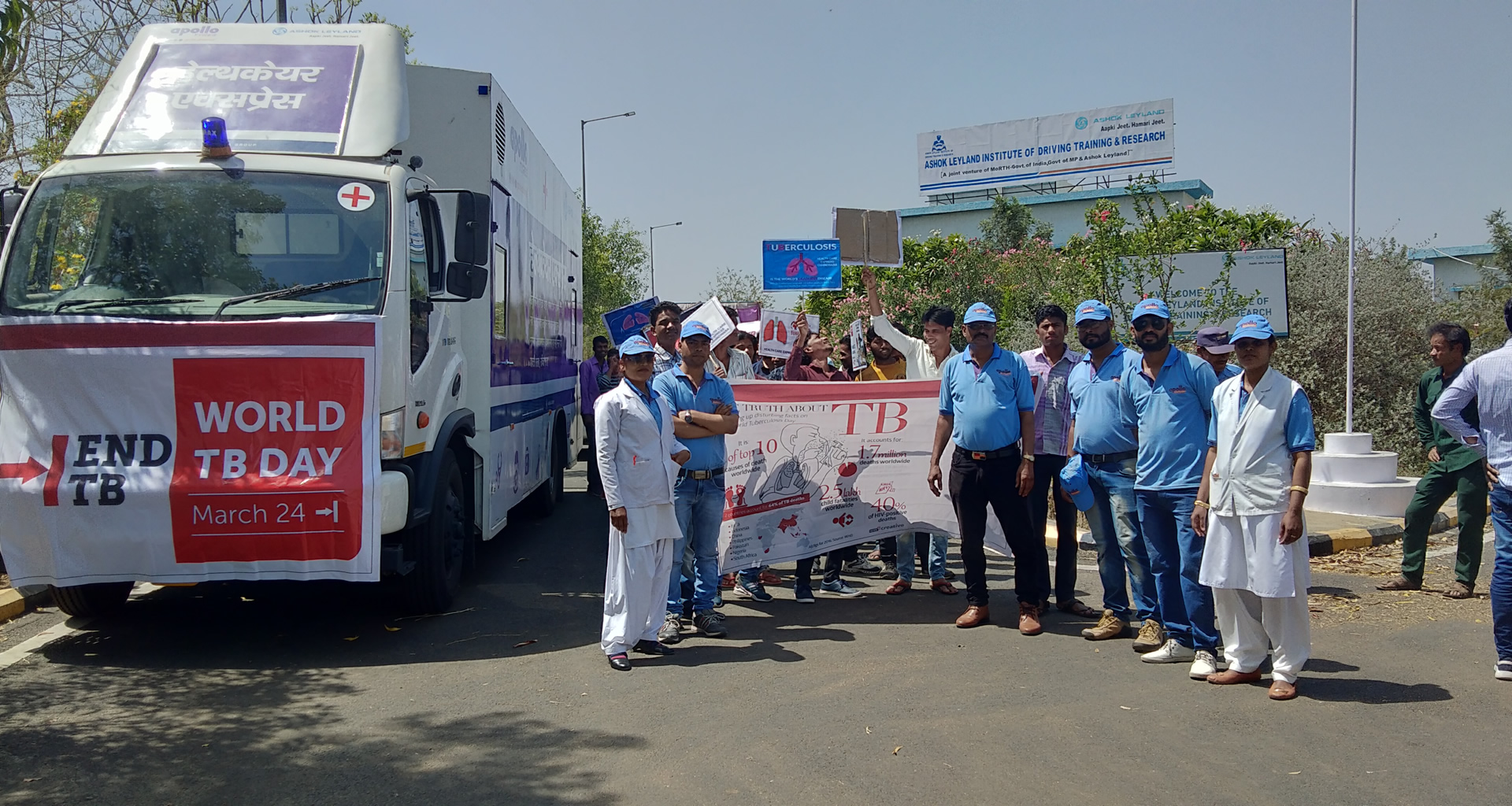
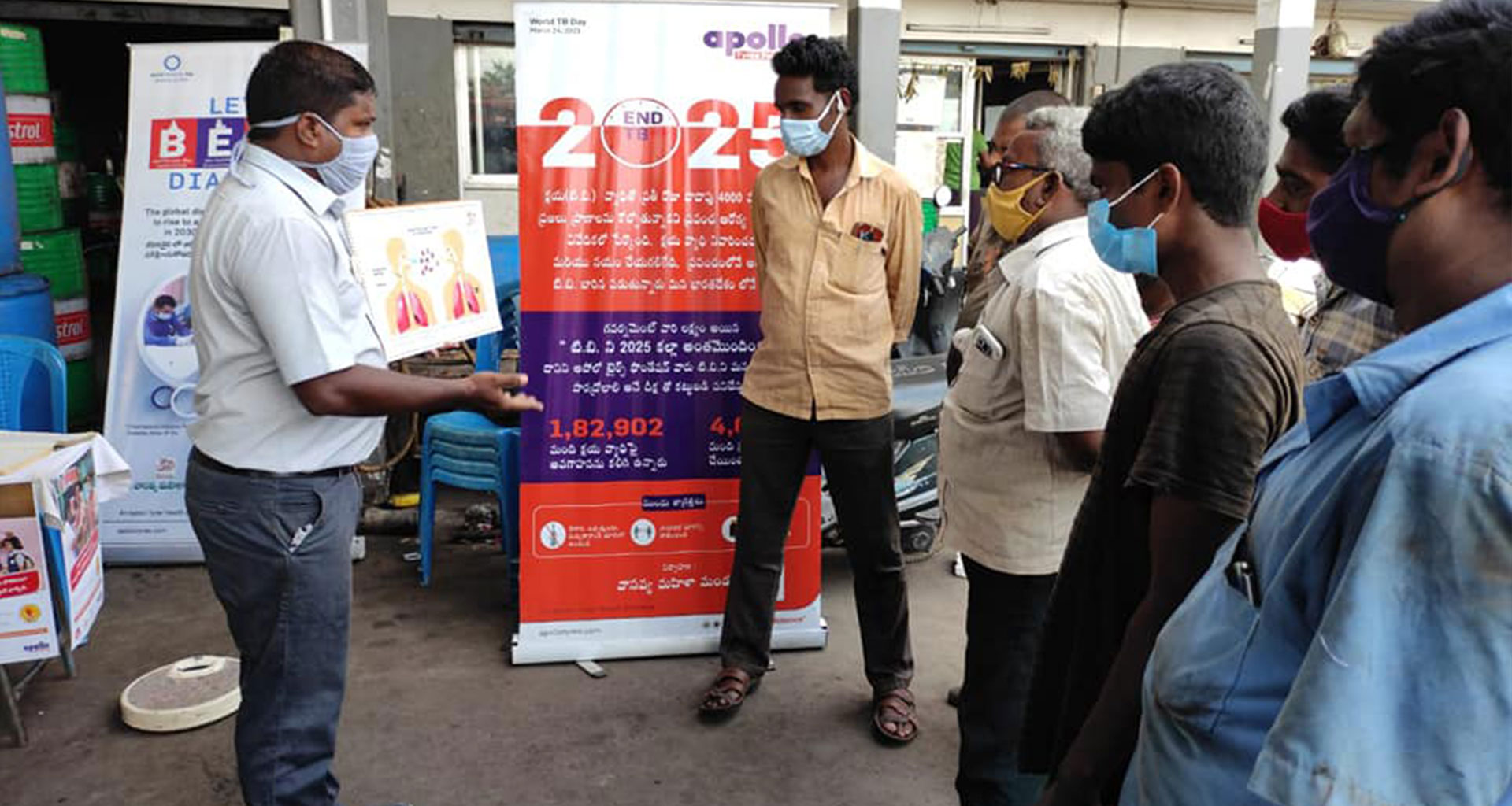
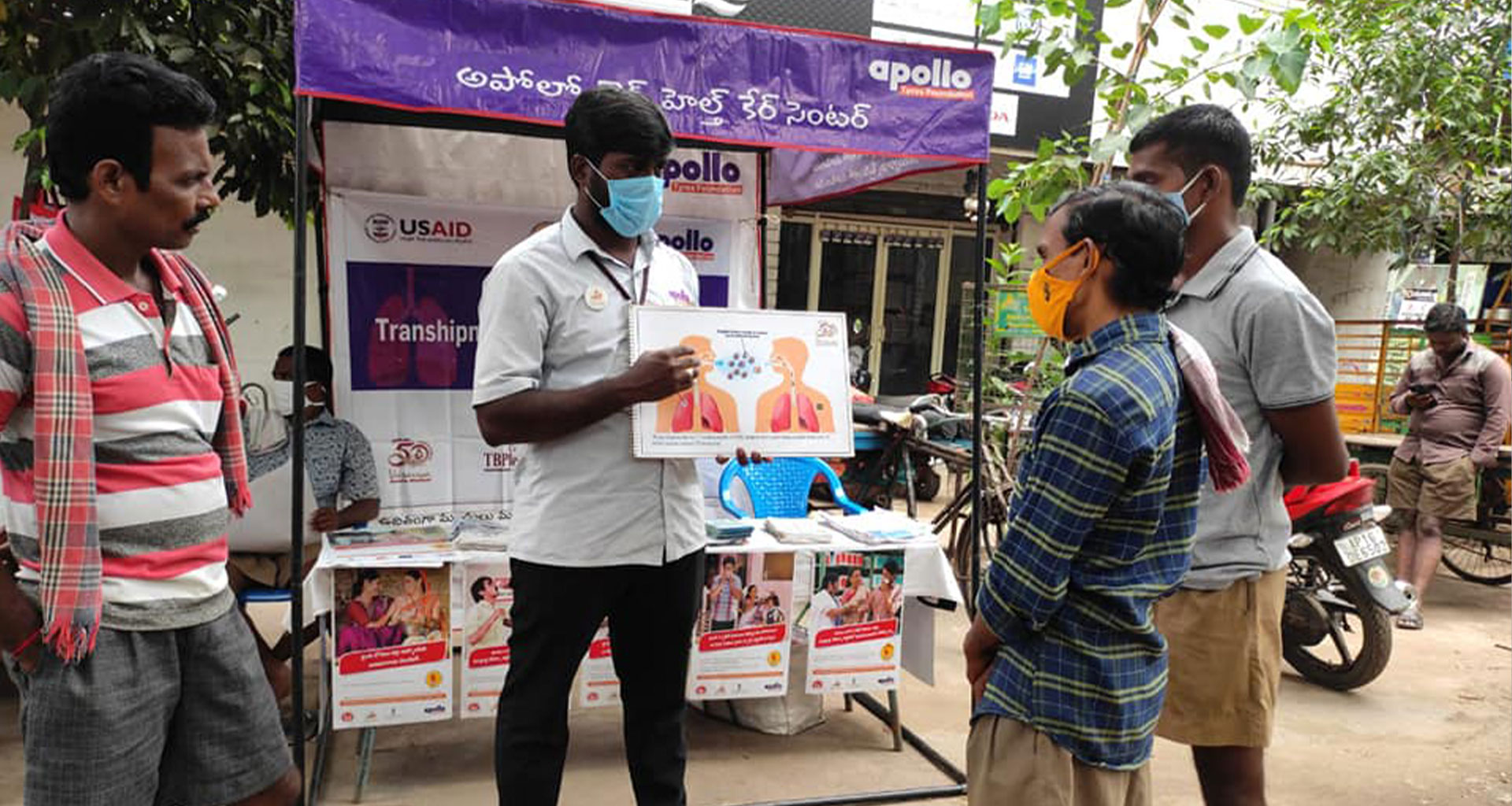
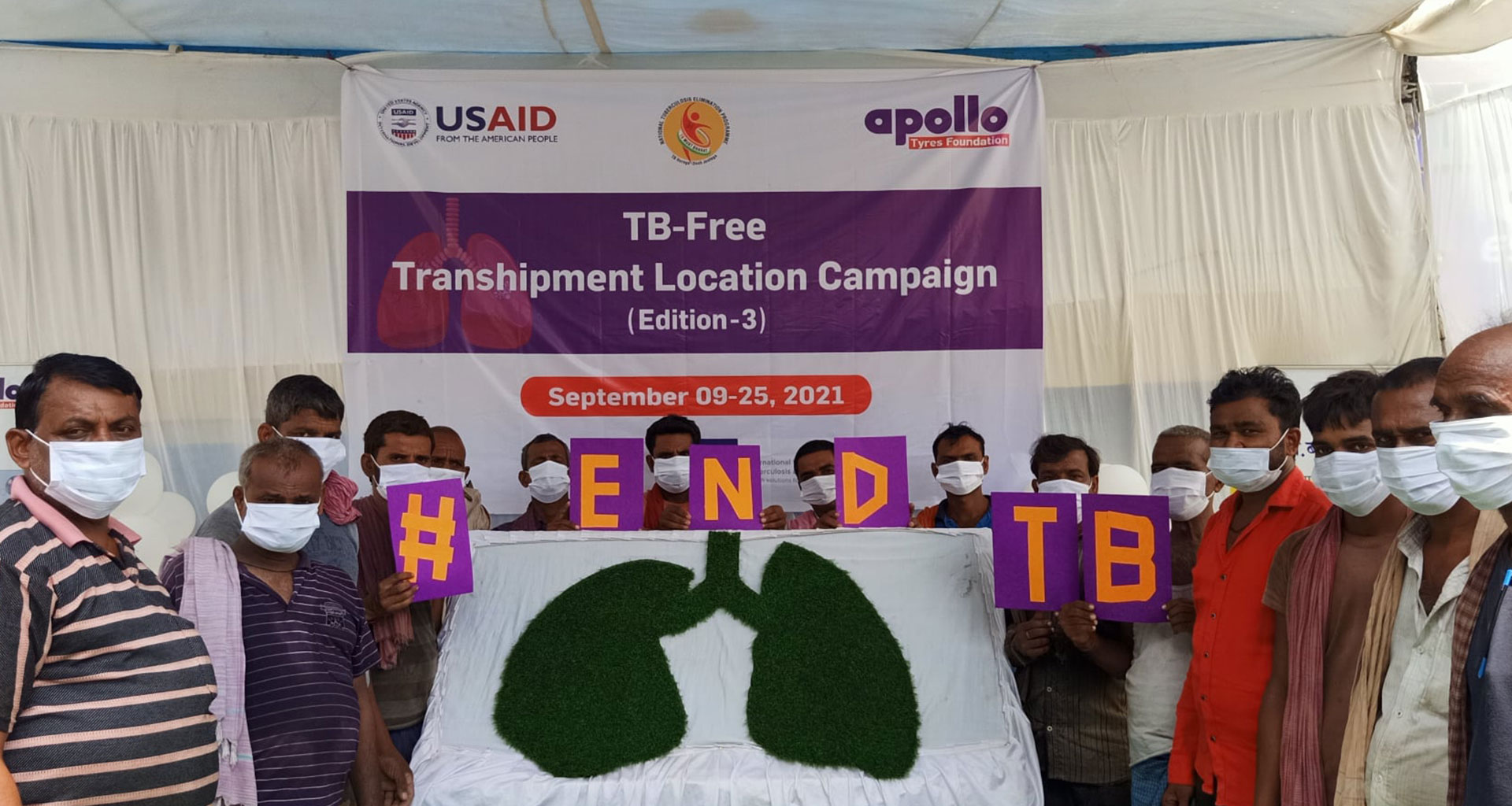
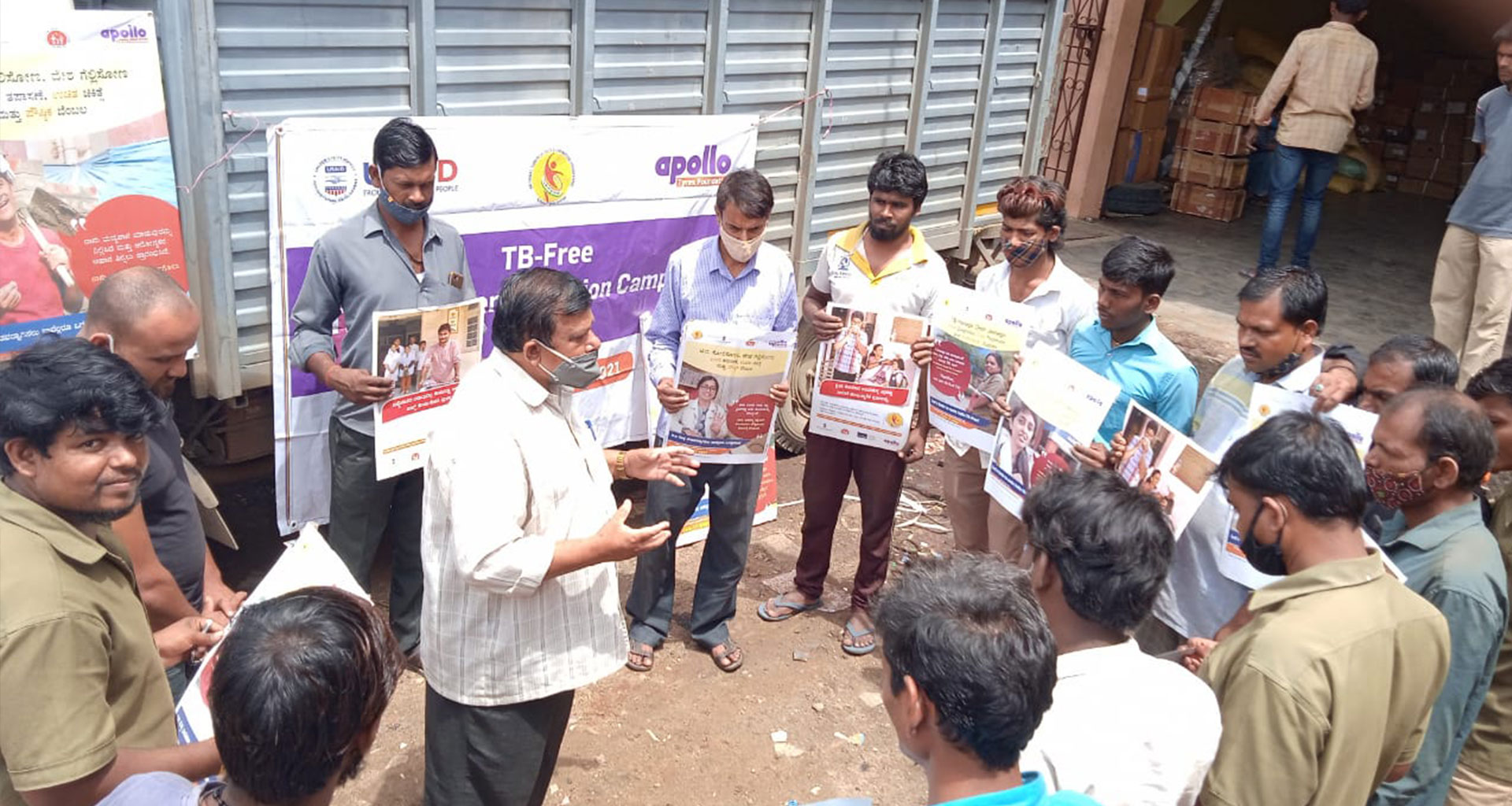
4. Other Non-Communicable Disease (NCDs)
Long working hours and sedentary lifestyles render truck drivers prone to non-communicable diseases (NCDS), like diabetes, hypertension, among others. The alarming rise in the number of cases across the trucking community spurred diabetes and hypertension screening at our healthcare centres, which has resulted in early detection and proper treatment.
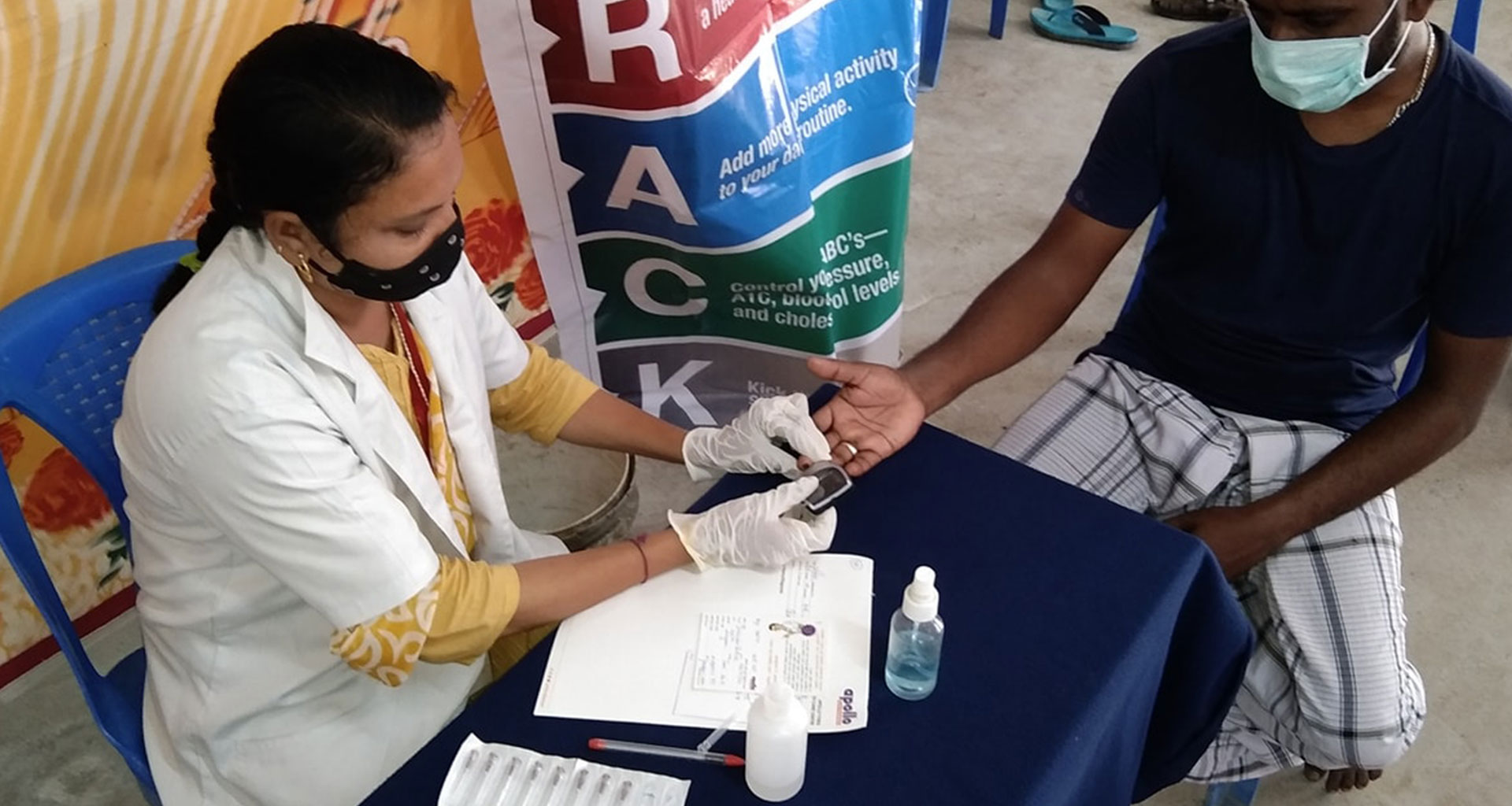
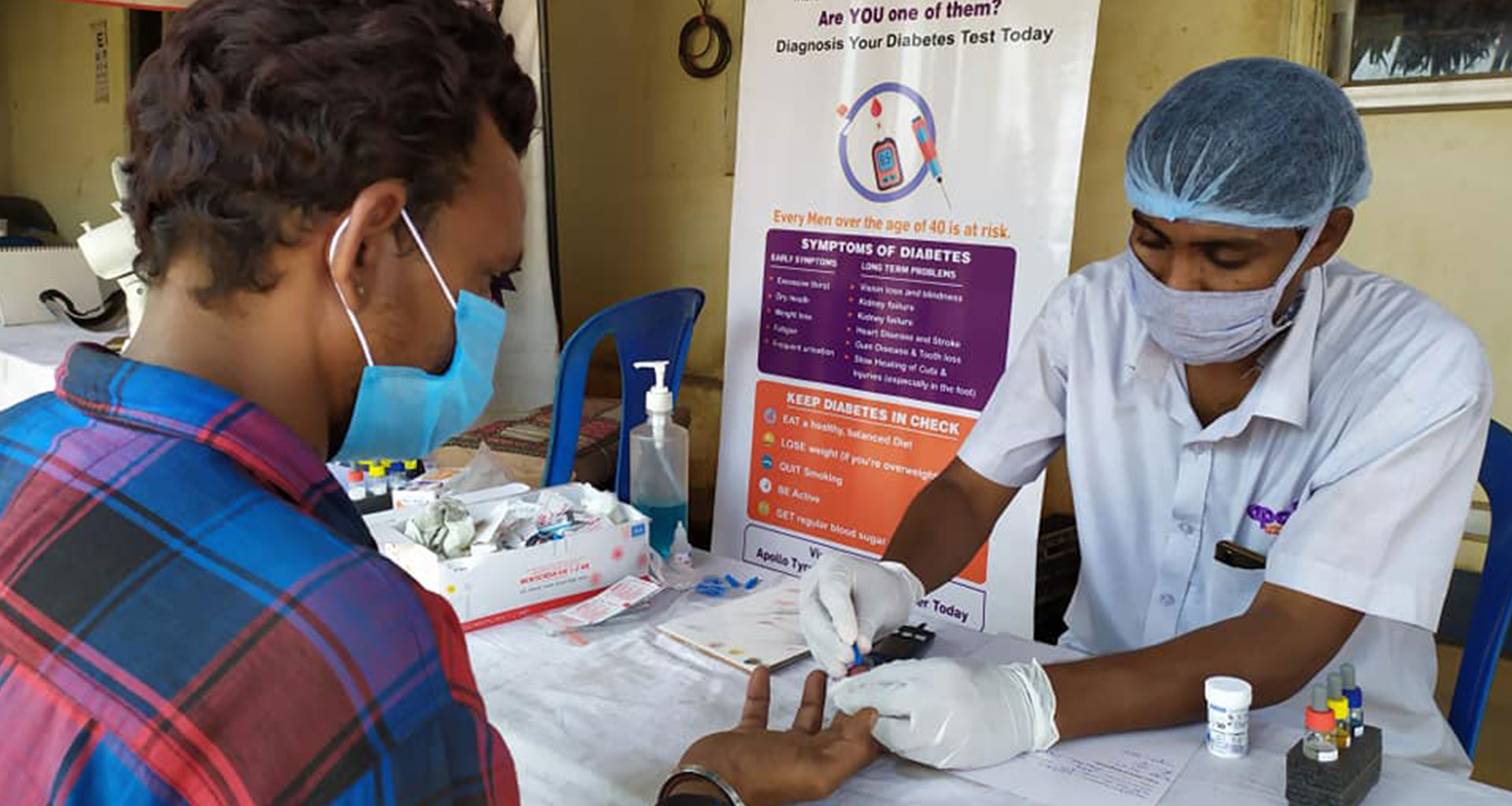
5. Mobile Medical Units (Apollo Tyres Healthcare Express)
With Apollo Tyres Healthcare Express, the company has taken quality healthcare for truck drivers right at their doorstep. Designed to provide healthcare services to long-distance truck drivers, this mobile medical unit provides its services at highways, district borders and trucking halt points. There are five mobile medical units (Apollo Tyres Healthcare Express) that are currently operational.
The company also organises regular health camps (Sakushal Saarthi) for the benefit of the employees of its fleet owners.
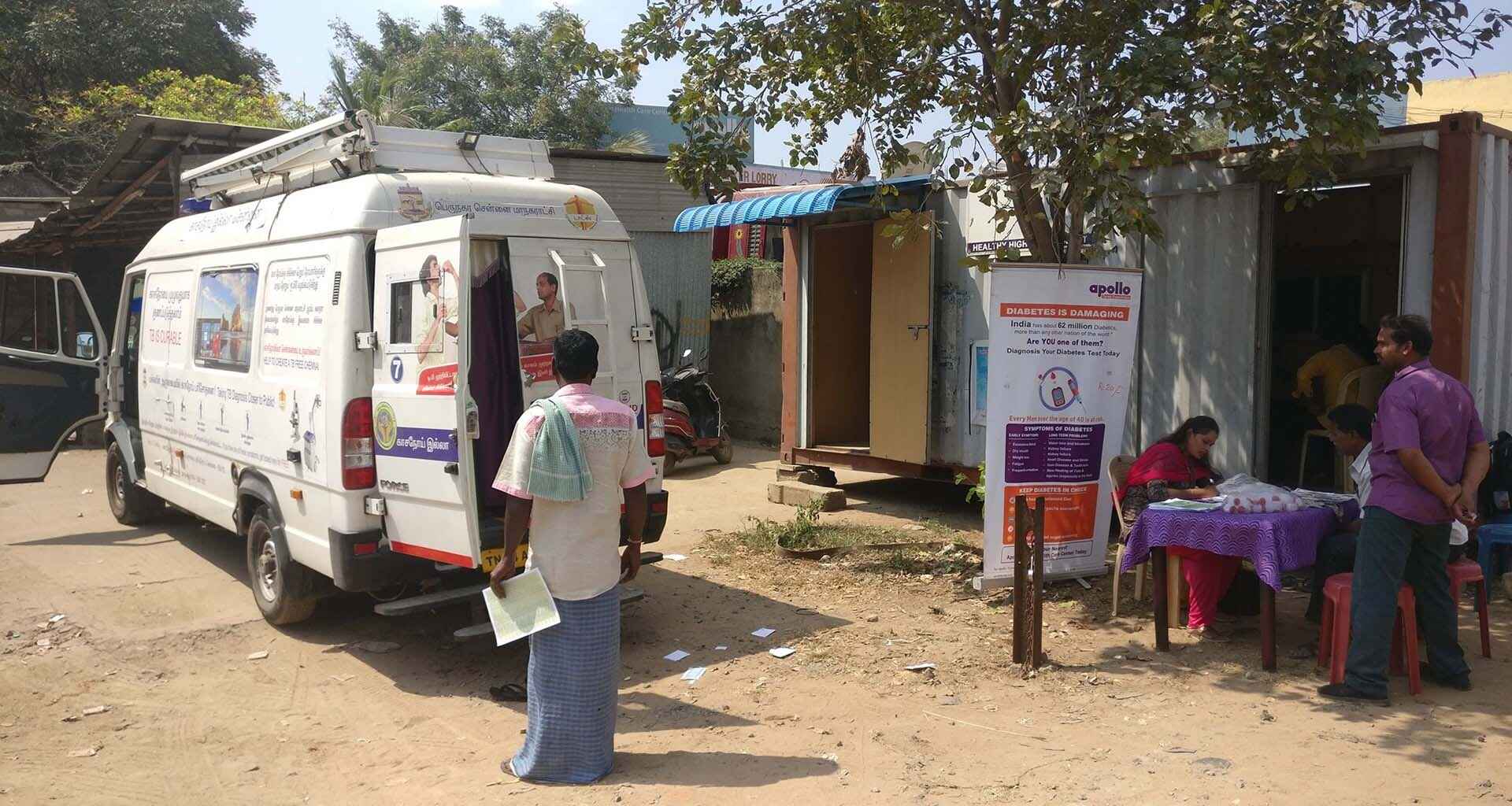
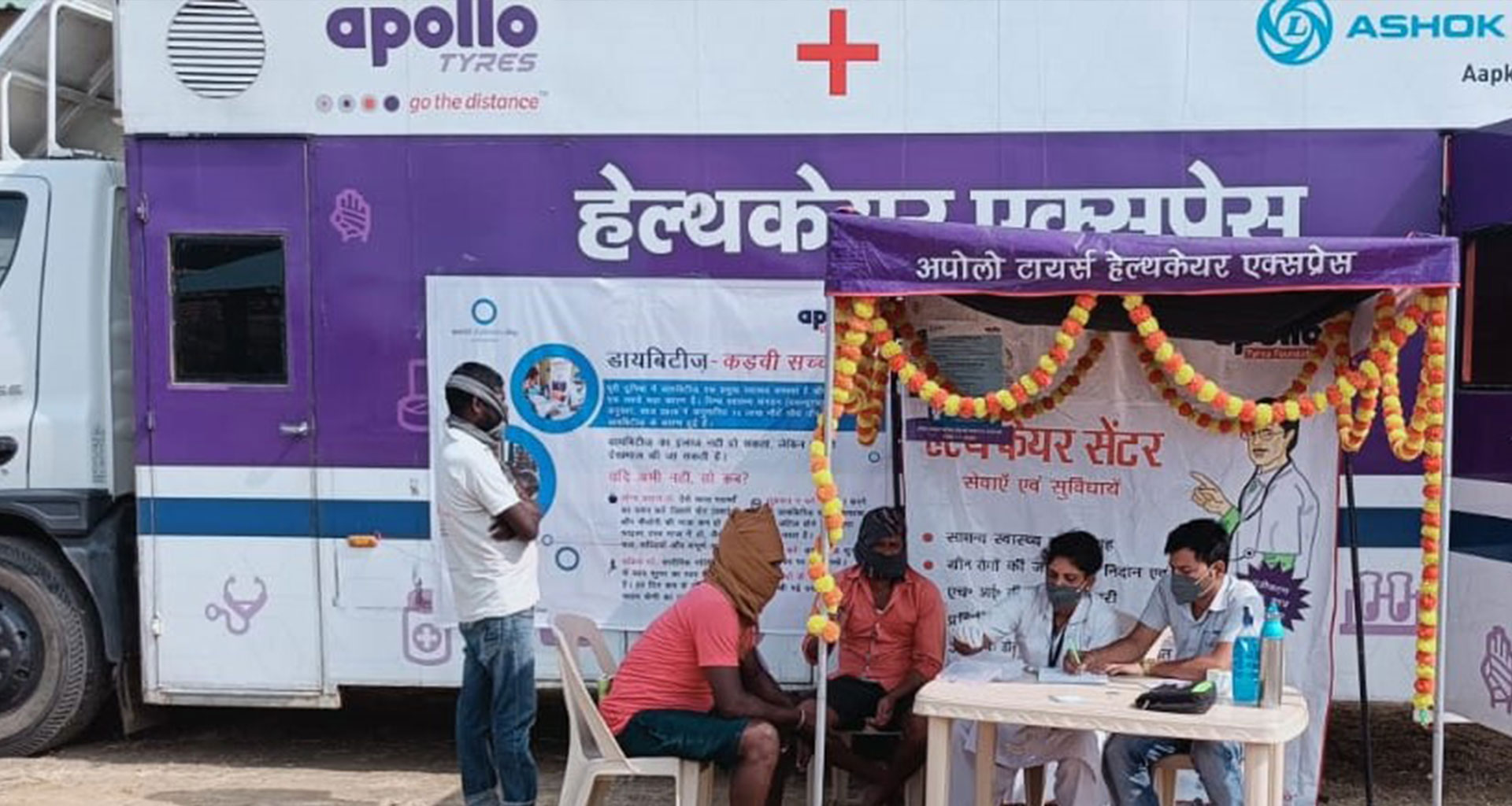
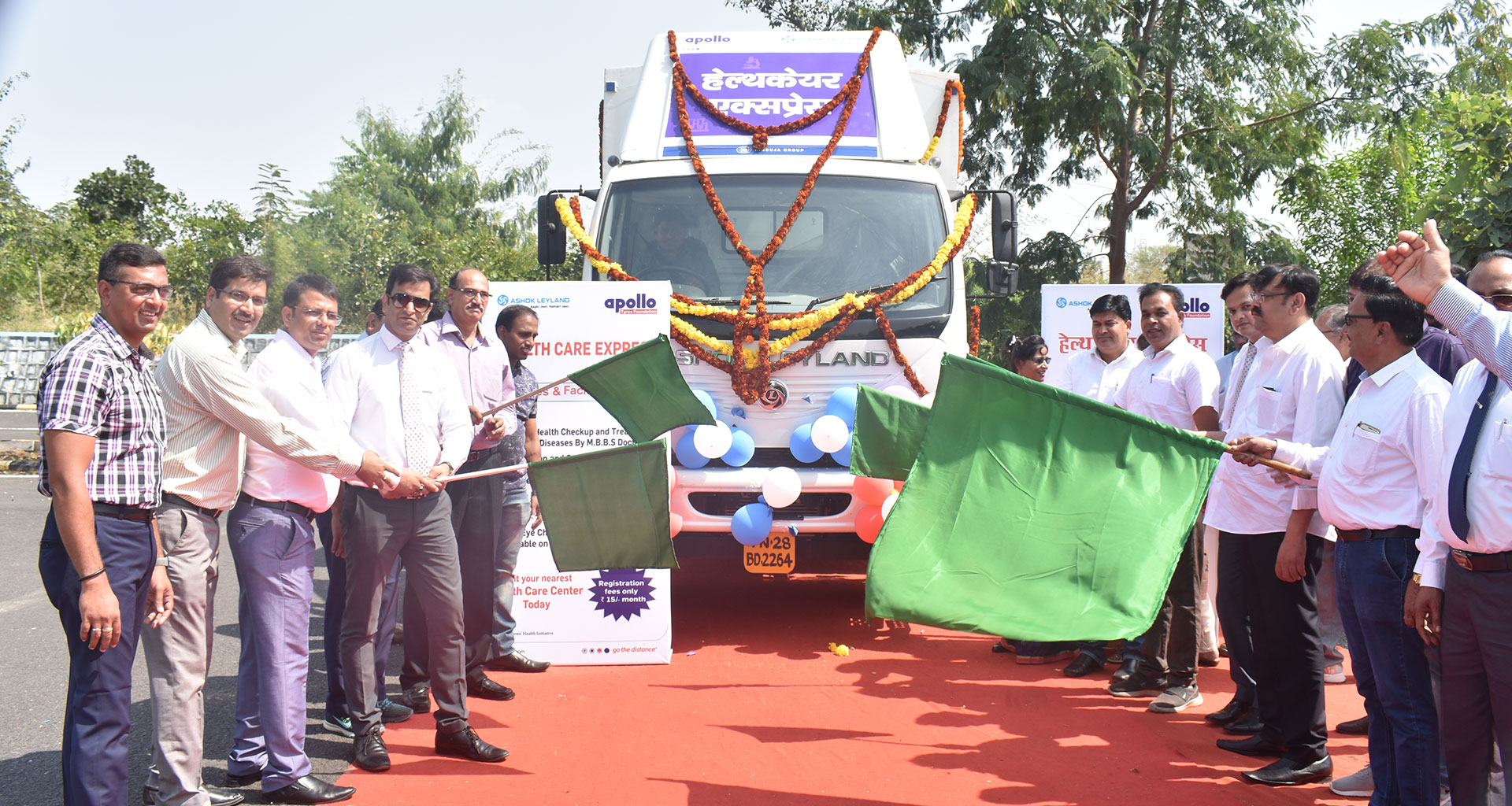
6.Oral Hygiene
High addiction to tobacco (smoking and chewing) and poor oral hygiene is a major health risk, among truck drivers. Apollo Tyres began the oral hygiene services in FY2020 with dedicated initiatives to spread awareness and encourage oral care.
7. Tele Medicine Consultation
When COVID-19 impacted physical healthcare services worldwide, Apollo Tyres initiated Tele Medicine Consultation facility, in partnership with Telerad Foundation, for the trucking community, across all 32 healthcare centres. Under this service, patients could avail online doctor consultation and collect medicines from the centres.
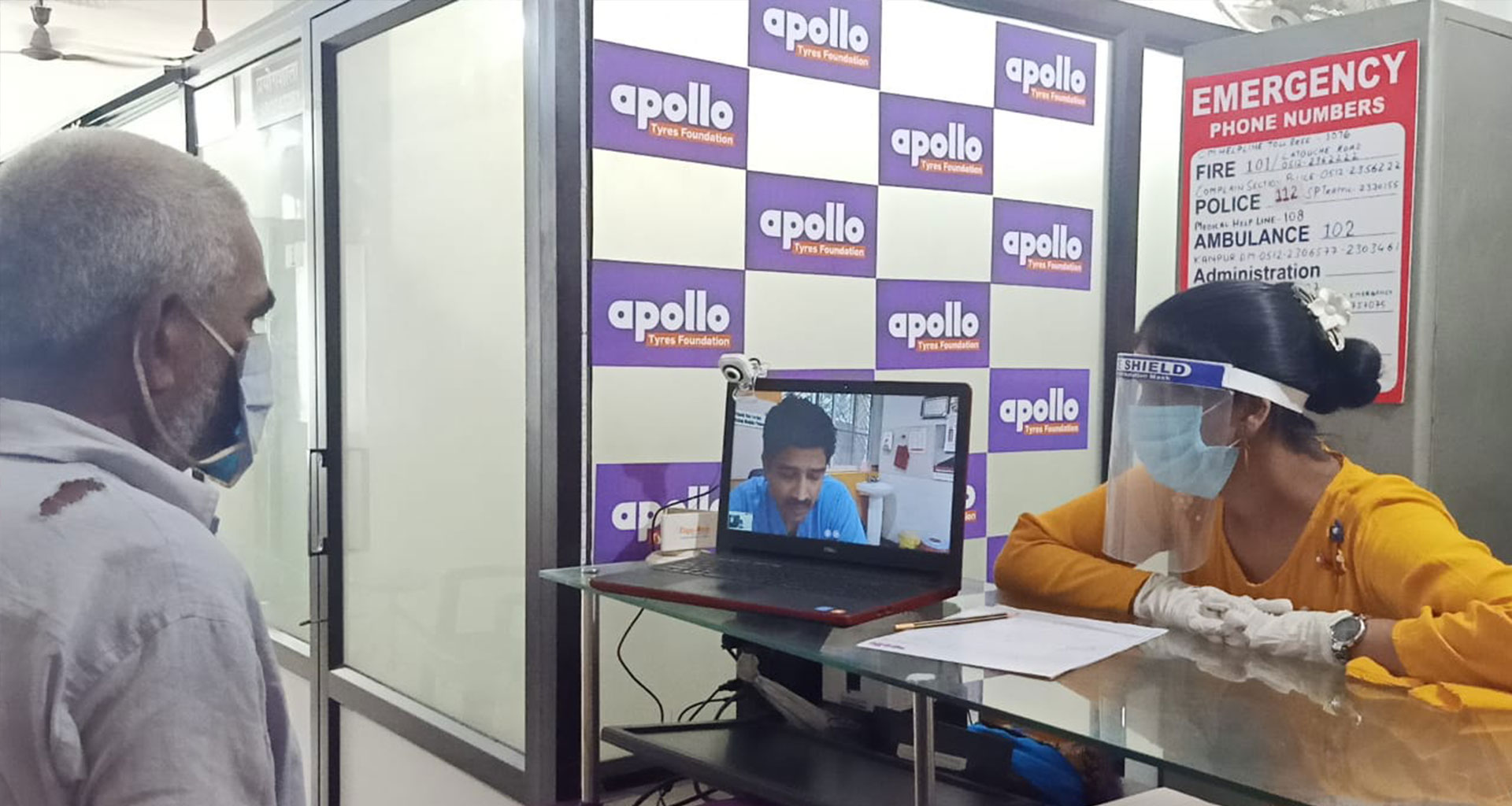
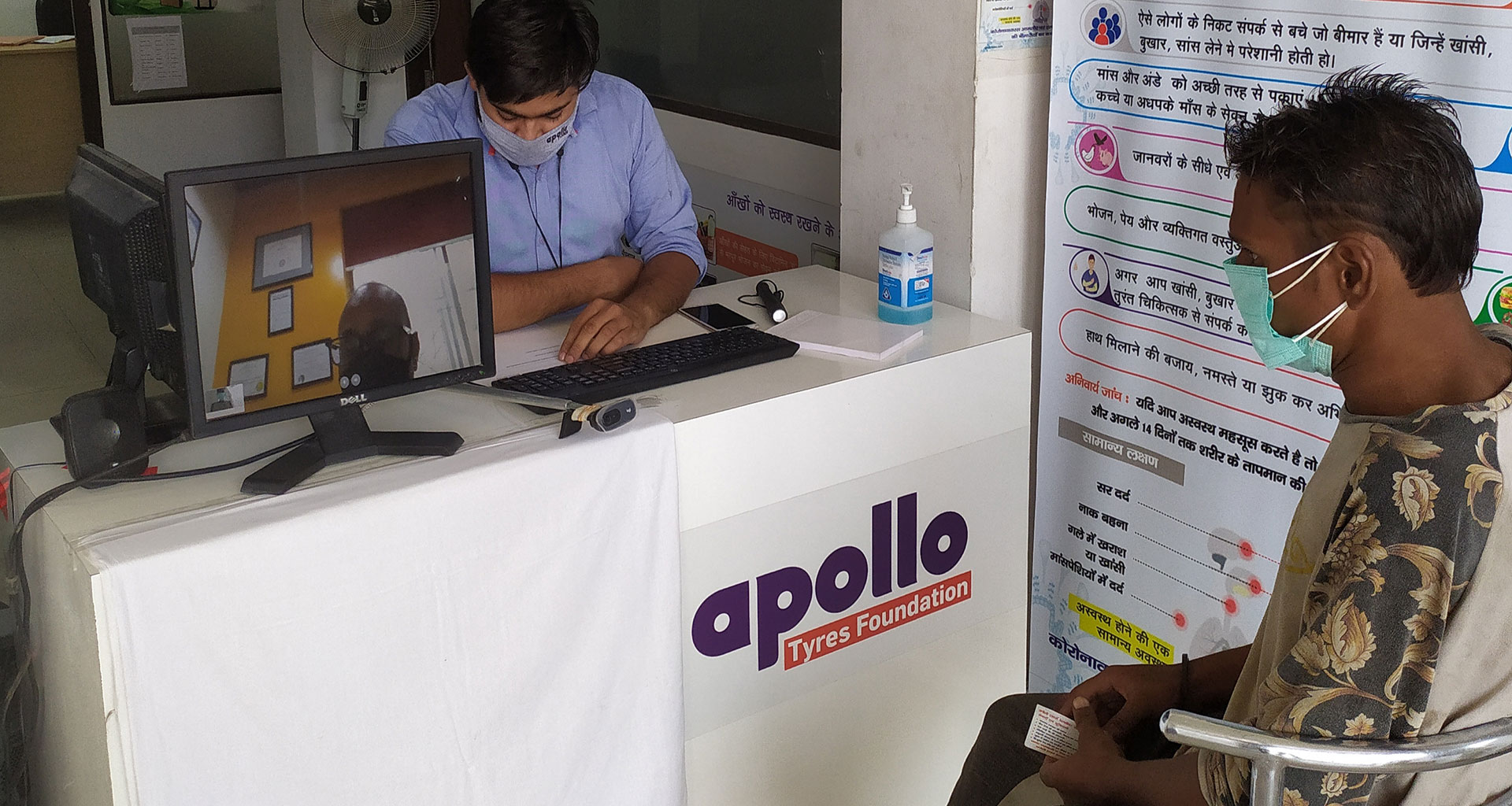
Healthcare Programme
THE APOLLO IMPACT
Over 8.3 million beneficiaries were outreached through healthcare initiatives |
